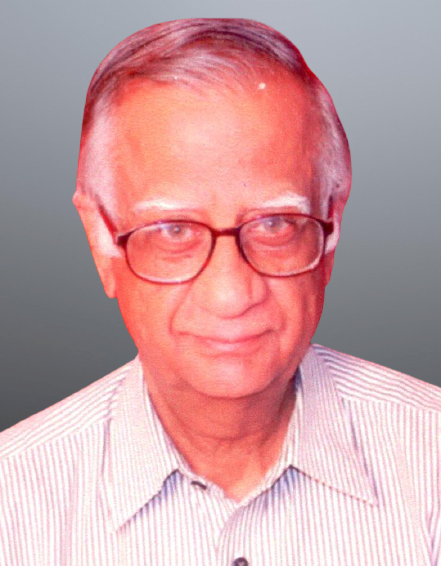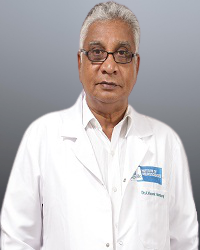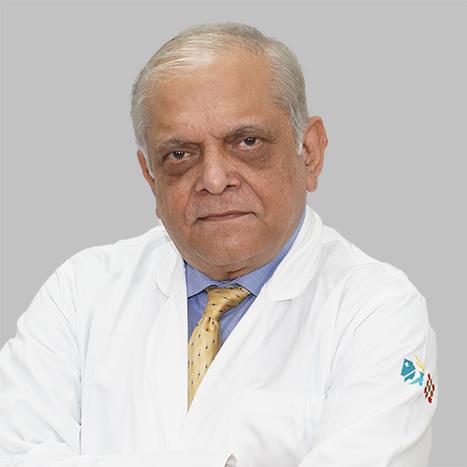Could not find what you are looking for?
- Departments
- Best Neurology Hospital In India | Top Hospital For Neurosurgery - Apollo Institute of Neurosciences
- Best Hospital For Functional Neurosurgery In India
Best Hospital for Functional Neurosurgery in India
Overview
Functional neurosurgery is a specialised branch of neurosurgery that focuses on improving neurological function and alleviating symptoms of various disorders through targeted surgical interventions. Unlike traditional neurosurgery, which primarily addresses structural abnormalities such as tumours or injuries, functional neurosurgery aims to enhance the quality of life for patients with conditions such as movement disorders, epilepsy, chronic pain, and certain psychiatric disorders.
At Apollo Hospitals, we recognise the significant impact that neurological disorders can have on your daily life. Our commitment to excellence in functional neurosurgery is reflected in our state-of-the-art facilities, advanced technology, and a team of highly skilled specialists dedicated to providing comprehensive and personalised care.
Why Choose Apollo Hospitals for Functional Neurosurgery?
Apollo Hospitals is a leader in functional neurosurgery in India, offering a multidisciplinary approach that brings together experts in neurology, neurosurgery, pain management, and rehabilitation. Here’s why patients trust us:
- Cutting-edge technology: We utilise the latest advancements in neurosurgical procedures, ensuring precision and improved patient outcomes.
- Minimally invasive techniques: Our approach prioritises patient comfort, reducing recovery time and hospital stays.
- Personalised treatment plans: We tailor every treatment to the unique needs of each patient, offering comprehensive care and long-term management solutions.
- World-class infrastructure: Our hospitals are equipped with advanced imaging, robotic-assisted surgery, and real-time monitoring systems to enhance surgical accuracy and patient safety.
Advanced Treatment Options in Functional Neurosurgery
Functional neurosurgery includes several innovative procedures aimed at treating neurological disorders effectively. At Apollo Hospitals, we offer:
-
Deep Brain Stimulation (DBS)
A highly effective procedure for patients with Parkinson’s disease, essential tremor, and dystonia, DBS involves implanting electrodes in specific areas of the brain to regulate abnormal neural activity and alleviate symptoms.
-
Stereotactic Surgery
This minimally invasive technique uses advanced imaging guidance to precisely target and treat conditions such as epilepsy and chronic pain, improving patient outcomes with reduced risks.
-
Vagus Nerve Stimulation (VNS)
A specialised therapy for epilepsy and depression, VNS involves implanting a device that sends electrical impulses to the vagus nerve, helping to control seizures and improve mood regulation.
-
Responsive Neurostimulation (RNS)
An advanced treatment for drug-resistant epilepsy, RNS involves a device that monitors brain activity and delivers electrical stimulation to prevent seizures before they start.
-
Pain Management Procedures
For patients with chronic pain conditions, we offer a range of neurosurgical interventions, including spinal cord stimulation and intrathecal drug delivery, to improve pain relief and enhance quality of life.
Each treatment plan is customised based on the patient’s medical history, symptoms, and overall health condition, ensuring the best possible outcomes.
State-of-the-Art Technology
Apollo Hospitals leverages cutting-edge technology to ensure precision and safety in functional neurosurgery. Our facilities are equipped with:
- Advanced imaging techniques such as high-resolution MRI and CT scans for accurate diagnosis and surgical planning.
- Robot-assisted surgery for enhanced precision and minimal tissue disruption.
- Real-time intraoperative monitoring to ensure optimal patient safety during procedures.
- Neuromodulation and neurostimulation technologies to provide effective symptom relief for neurological conditions.
Our continuous investment in research and innovation allows us to stay at the forefront of medical advancements, offering our patients world-class care.
Frequently Asked Questions (FAQs)
-
What is functional neurosurgery?
Functional neurosurgery involves surgical interventions designed to improve neurological function by targeting specific areas of the brain or nervous system.
-
Who can benefit from functional neurosurgery?
Patients with movement disorders (e.g., Parkinson’s disease), epilepsy, chronic pain, and certain psychiatric conditions may benefit from these advanced neurosurgical procedures.
-
What are the risks associated with functional neurosurgery?
Like any surgical procedure, functional neurosurgery carries potential risks, including infection, bleeding, and anaesthesia-related complications. However, our specialists take every precaution to minimise these risks.
-
How long is the recovery period after functional neurosurgery?
Recovery time varies depending on the procedure and individual patient factors. While some patients may recover within a few days, others may require a longer rehabilitation period.
-
Will I need to stay in the hospital after surgery?
Most procedures require a short hospital stay for monitoring, but some can be performed on an outpatient basis.
-
How effective is deep brain stimulation for Parkinson’s disease?
DBS has been proven to significantly reduce motor symptoms in Parkinson’s disease patients, improving their quality of life and daily functioning.
-
Can functional neurosurgery cure my condition?
While functional neurosurgery can significantly reduce symptoms and improve quality of life, it may not be a definitive cure. Our specialists will set realistic expectations during consultations.
-
What should I expect during the consultation process?
During your consultation, our experts will review your medical history, perform necessary diagnostic tests, and discuss suitable treatment options tailored to your needs.
-
Is functional neurosurgery covered by insurance?
Many insurance plans cover functional neurosurgical procedures. We recommend consulting with your insurance provider for details on coverage.














